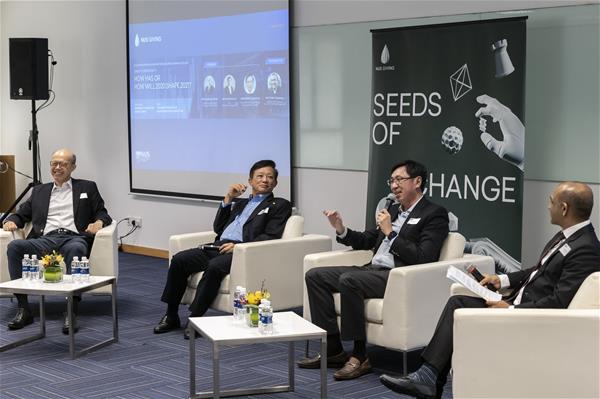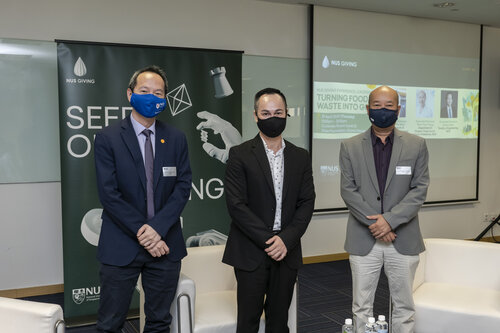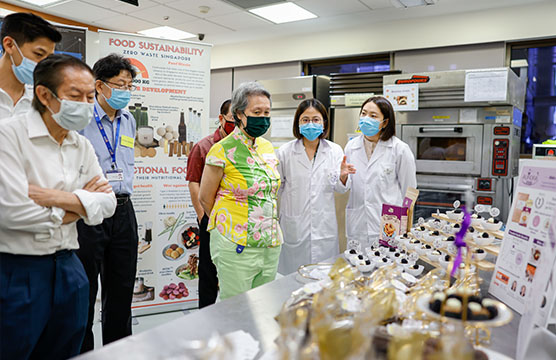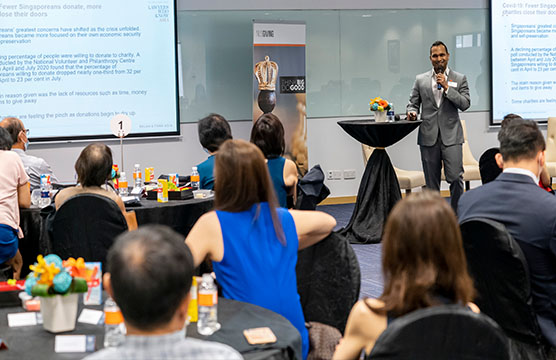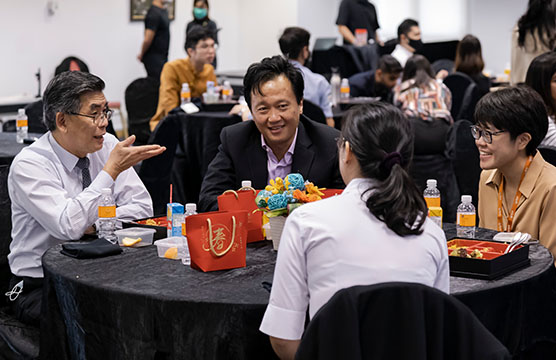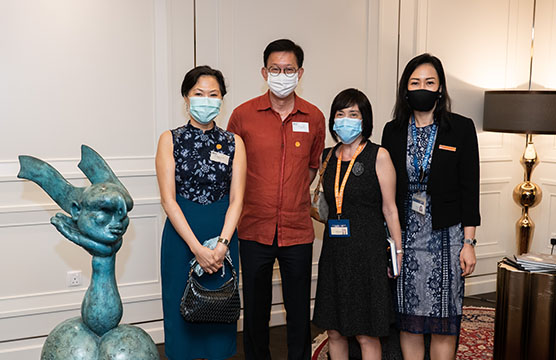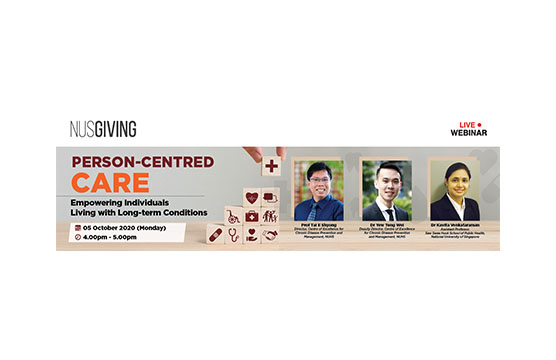NUS Giving Experience: Taking Farming into the Future
Jul 12, 2021
A panel of NUS Alumni from the NUS Graduate Research Programme (NUS GRIP) share their knowledge and experience in agritech and innovative farming.
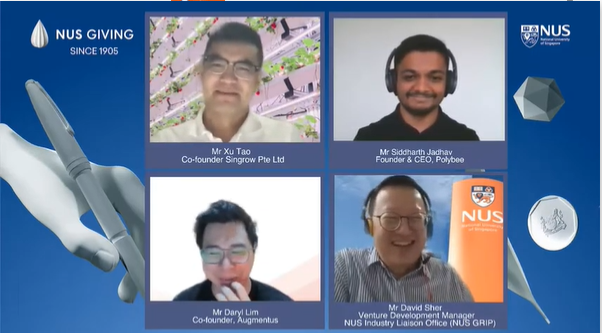
Did you know that there is a strawberry farm at the heart of Singapore? Housed in a repurposed sports hall, Singrow is a farm straight out of a sci-fi movie. It is powered by Artificial Intelligence (AI), while the flowers are pollinated by palm-sized drones and the ripe strawberries are picked by a robotic arm.
The brains behind this high-tech farm hail from the National University of Singapore Graduate Research Programme (NUS GRIP): Augmentus co-founder Mr Daryl Lim, Polybee founder Mr Siddharth Jadhav, and Singrow co-founder Mr Xu Tao. The NUS alumni shared their experience on innovative farming at the NUS Giving Experience Webinar, titled “Taking Farming into the Future”.
Moderator Mr David Sher, NUS GRIP’s Venture Development Manager, kicked off the discussion about how the agritech firms are helping Singapore to hit the “30 by 30” goal — increasing local production to 30 percent of its food supply by 2030.
“We are on a mission to enhance food security,” shared Mr Siddharth. “To achieve that mission, the means we have chosen is to improve the productivity of high value crops. At Polybee, we are building autonomous drones for pollination and plant measurements in controlled environments.”
“We don’t really have traditional solutions for pollination in Singapore – there isn’t a market where you can hire beekeepers or buy some hives to do pollination. Given our ambition to have 30 percent of our nutritional needs to be grown locally by 2030, we have to look at growing crops which are dependent on pollination,” elaborated Mr Siddharth.
Singrow has developed a hydroponics system which can cultivate seasonal crops all year round in tropical countries. Mr Xu said: “There are many fruits and vegetables that cannot be grown in our tropical climate. But they are very delicious. I have a simple wish to grow the plants in Singapore and let people try the taste.”
“Singrow has the advanced knowledge and technology to get new plant varieties. We produce a new plant (variety) to fit a special environment, like a tropical climate or indoor area. We can also get new varieties with high yield and low growth cost. An example is our white strawberry, which can thrive in the tropical climate very well, and has a very good taste,” Mr Xu added.
Augmentus’ user-friendly AI platform helps agriculture companies achieve efficiency. By adopting Augmentus’ technology, Singrow uses less manpower as compared to traditional farming.
“We want to lower the barriers for companies like Singrow who want to revolutionise their automation in their industries. We want to be the foundation platform,” explained Mr Lim.
“Singrow is one of the first agricultural companies which used our platform to build dynamic harvesting solutions. It’s more cost effective, because without us they probably need to hire a few robot engineers and AI specialists,” he elaborated.
Automation can also help to solve manpower woes beyond Singapore. Mr Lim shared: “I was speaking to our counterparts in Indonesia and Thailand. The reality in those countries is that land is not too much of an issue. The issue is when the workers start upscaling themselves. They wouldn’t want to be farming. They want to automate the entire process.”
The challenges faced by the agriculture industry are not unique to our country. Singapore’s cutting-edge agritech can benefit the world by going global.
Polybee works closely with multinational seed companies and greenhouse operators in the Netherlands and Australia. Singrow is looking at expanding its technology to China. They are also in talks to help companies adopt vertical farming in the Middle East and Russia.
Mr Siddharth revealed: “The solutions that we are building are of global relevance... You are tackling a really fundamental problem bothered by all mankind, all geographies, all regions, that’s also relevant to us.”
“We hope to build an ecosystem in the farming industry in Singapore. In the future, Singapore could guide the farming industry in the world,” Mr Xu added, sharing his hopes for the future of agritech and the farming industry in Singapore and beyond.
For further information on the NUS Giving Experience Series, contact the Events team at dvoevents@nus.edu.sg.

